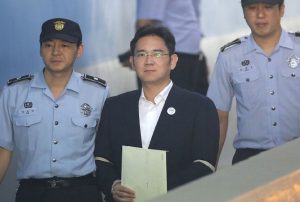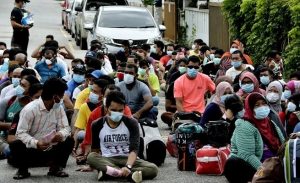12-08-2022
KUALA LAMPUR: Malaysia has made a new government tracking system for the more than 184,000 United Nations-registered refugees and asylum seekers in the country a “must”, raising concerns about the risks to people who have no legal status or protections in Malaysia.
 Home Minister Hamzah Zainudin announced that the federal government had approved the use of the Tracking Refugees Information System (TRIS) on July 22, adding that all refugees had to register on the system to “identify the whereabouts of refugees and their reporting in the country”.
Home Minister Hamzah Zainudin announced that the federal government had approved the use of the Tracking Refugees Information System (TRIS) on July 22, adding that all refugees had to register on the system to “identify the whereabouts of refugees and their reporting in the country”.
“TRIS can also ensure whether they are living in our country for the purpose of employment or to carry out other matters which could be improved through the policy approved by the National Security Council,” he said.
The UN defines refugees as people who have fled war, violence, conflict or persecution and have crossed an international border to find safety in another country. The thousands of refugees in Malaysia have escaped from countries including Myanmar, Syria and Yemen.
The minister’s recent announcement has brought renewed attention to a system that was initiated in 2017, and has raised concern about its purpose and effect on the lives of people who are already marginalised.
 On its website, TRIS is described as a compulsory registration scheme initiated by the government for every UNHCR card holder and asylum seeker residing in Malaysia, and every registered refugee and asylum seeker receives a special ID card called (MyRC) certified by the government.
On its website, TRIS is described as a compulsory registration scheme initiated by the government for every UNHCR card holder and asylum seeker residing in Malaysia, and every registered refugee and asylum seeker receives a special ID card called (MyRC) certified by the government.
The information system is run and implemented by a private company called Barisan Mahamega Sdn Bhd, which was given the responsibility of handling the system by the home ministry.
Companies Commission filings show the company is chaired by Akhil Bulat, a former head of the Special Branch, the intelligence division of the Malaysian police. Akhil, who retired in 2015, is also the company’s largest shareholder.
Security objectives
The TRIS website mentions that the objective of the system is to help the government settle issues related to monitoring the status of refugees and asylum seekers residing in Malaysia.
 “Increasing number of refugees in the country give the bad impact on the Government,” the website says.
“Increasing number of refugees in the country give the bad impact on the Government,” the website says.
“Registration and (to) control them (refugees) are so critical to make sure the safety of the country as especially the refugees who pose impact to produce social problems are concentrated.”
The UN refugee agency, housed in a sprawling compound not too far from the centre of Kuala Lumpur, is usually the first port of call for new arrivals in Malaysia.
Refugees and asylum seekers go through a long process of detailed and extensive interviews that can take months, before being handed the UNHCR card, which gives them some protection while they live in Malaysia awaiting potential resettlement in a third country. (Int’l News Desk)
 Pressmediaofindia
Pressmediaofindia




